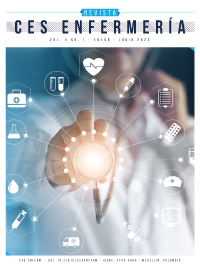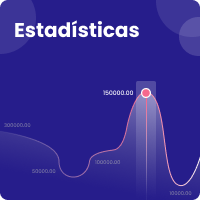Managing nursing human talent: Challenges in the 4.0 revolution and generational changes
DOI:
https://doi.org/10.21615/cesenferm.7318Keywords:
nursing care, nursing staff, personnel administration hospital, revolution 4.0, intergeneration IntervalAbstract
Various dynamics have permeated health organizations over the last decade, such as political changes, the migration of vulnerable populations to concentric capital areas, the insertion of technology for the care of people, the new ways of systematizing and make decisions based on data to obtain the best health results and which, in turn, account for the scope of the objectives of the institutions where nursing care is provided. Under this scenario, the nursing professional from the various levels of decision-making, strategic, intermediate, and operational, has been led to manage human nursing talent, to which are added generational aspects that characterize the structure of the different groups of workers and that has a direct influence in the relational sphere, in the way we communicate within organizations and in the way strategies are understood and executed to carry out care interventions for the good of patients, caregivers, and the led staff. For this reason, some challenges are presented below from the reflective analysis experienced from the interaction with the nursing directorates that support the teaching field for care management and bibliographic review, allowing to propose work alternatives for the strengthening of the management of nursing human talent as the central axis of the development of health institutions.
Downloads
References
Organización Panamericana de la Salud. La OPS/OMS destaca la necesidad de formar más personal de enfermería en América Latina y el Caribe. [Internet]. Disponible en: https://www3.paho.org/hq/index.php?option=com_content&view=article&id=10947:2015-pahowho-highlights-need-train-more-nursing-personnel&Itemid=1926&lang=es
Diño MJS, Ong IL. Research, technology, education & scholarship in the fourth industrial revolution [4IR]: Influences in nursing and the health sciences. J Med Investig [Internet]. 2019;66(1.2):3–7. Disponible en: https://www.jstage.jst.go.jp/article/jmi/66/1.2/66_3/_pdf/-char/ja
Mompart MP, Duran M. Administración y gestión. DAE-Grupo Paradigma, editor. Madrid, España; 2001. 426 p.
Dimock M. Where Millennials end and Generation Z begins | Pew Research Center. Pew Res Cent [Internet]. 2019;17:1–7. Disponible en: http://tony-silva.com/eslefl/miscstudent/downloadpagearticles/defgenerations-pew.pdf
Saucedo J, Hernández A, Amezcua B, De la Peña A, Ávila R. Comportamiento que presenta la generacion silenciosa respecto a la moda. Rev Int Adm Finanz. 2017;10(5):95–103.
Díaz-Sarmiento C, López-Lambraño M, Roncallo L. Entendiendo las generaciones: una revisión del concepto, clasificación y características distintivas de los baby boomers, X y millennials. Clío América Uniersidad Magdal [Internet]. 2017;11(22):188–204. Disponible en: https://revistas.unimagdalena.edu.co/index.php/clioamerica/article/view/2440
Grishaeva SA, Lebedeva AA. Prospects for the development of digital forms of political participation of generation Z in modern Russia. Digital Sociology [Internet]. 2021;3(4):12–8. Disponible em: http://dx.doi.org/10.26425/2658-347x-2020-3-4-12-18
Mazzoni VG, Bittencourt LP, Ribeiro ML, Gouvêa MV. Desafios da dimensão organizacional do cuidado no cotidiano de trabalhadores de enfermagem. Rev Enferm UFPE On Line [Internet]. 2018 [citado el 04 de mayo de 2023];12(1):11. Disponible en: https://periodicos.ufpe.br/revistas/revistaenfermagem/article/view/230392/25793
Lastra JM. Rifkin, Jeremy, La Tercera Revolución Industrial. Bol Mex Derecho Comp [Internet]. 2017;1(150):1457. Disponible en: https://www.scielo.org.mx/pdf/bmdc/v50n150/2448-4873-bmdc-50-150-1457.pdf
Montecinos E. Cuarta revolución industrial y la administración pública en América Latina. Rev Venez Gerenc [Internet]. 2021;26(93):10–32. Disponible en: https://www.redalyc.org/journal/290/29066223002/29066223002.pdf
Consejo Internacional de Enfermeras. Enfermería una voz para liderar. Invertir en Enfermería y Respetar los Derechos para Garantizar la Salud Global. [Internet]. Ginebra, Suiza; 2022. Disponible en: https://www.icn.ch/sites/default/files/inline-files/ICN_IND_Toolkit_2022-ES-final_low res.pdf
Steel M, Seaton P, Christie D, Dallas J, Absalom I. Nurse perspectives of nurse-sensitive indicators for positive patient outcomes: A Delphi study. Coll Aust J Nurs Pract Scholarsh Res [Internet]. 2021;30(2):145–56. Avai Disponible en: https://www.sciencedirect.com/science/article/abs/pii/S1322769620300202
El-khateeb S, El Dahshan M, Shokry W. Using magnet components in nursing practice. Menoufia Nursing Journal [Internet]. 2022 [citado el 04 de mayo de 2023];7(1):63–72. Disponible en: https://journals.ekb.eg/article_226372_fd898849ae7ca92e5cbb3bb12757c9e6.pdf
Benner P. From Novice to Expert. Excellence and Power in Clinical Nursing Practice. New Jersey: Prentice Hall Health; 1980.
Voss JG. Why mentoring matters for new graduates transitioning to practice: Implications for nurse leaders. Nurse Lead. 2022;20:399–403.
Berkes F. Evolution of co-management: role of knowledge generation, bridging organizations and social learning. J Environ Manage [Internet]. 90(5):1692-1702. Disponible en: https://citeseerx.ist.psu.edu/document?repid=rep1&type=pdf&doi=fd0bb51d99dec0373a0d1fa05b0e298a11151c52
Malik A, Budhwar P, Kandade K. Nursing excellence: A knowledge-based view of developing a healthcare workforce. J Bus Res [Internet]. 2022;144:472-483. Disponible en:https://www.sciencedirect.com/science/article/abs/pii/S0148296322001059
Goh E, Okumus F. Avoiding the hospitality workforce bubble: Strategies to attract and retain generation Z talent in the hospitality workforce. Tour Manag Perspect [Internet]. 2020;33(100603):100603. Disponible en: https://www.sciencedirect.com/science/article/pii/S2211973619301357
Downloads
Published
How to Cite
Issue
Section
License
Copyright (c) 2023 CES Enfermería

This work is licensed under a Creative Commons Attribution-NonCommercial-ShareAlike 4.0 International License.
| Article metrics | |
|---|---|
| Abstract views | |
| Galley vies | |
| PDF Views | |
| HTML views | |
| Other views | |




